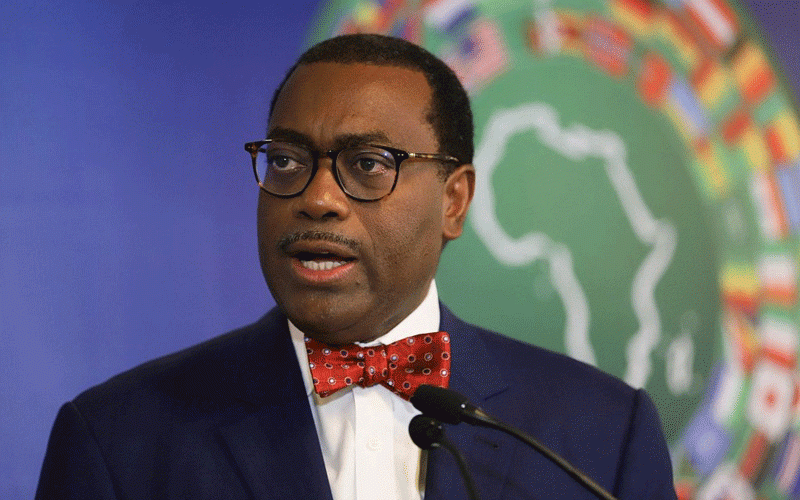
THE African Development Bank (AfDB) says it is working on a financial instrument to fund the US$3,5 billion needed to compensate white former commercial farmers.
AfDB is working with the Ministry of Finance and Economic Development on the instrument.
Zimbabwe made a commitment in 2020 to compensate local white farmers whose land was taken by the government during the government’s largely chaotic land reform programme.
Zimbabwe is currently engaged in a debt dialogue with the creditors, a process being led by former Mozambican President Joaquim Chissano and AfDB president Akunwumi Adesina.
Adesina told the 4th High-Level Debt Resolution Forum held in Harare yesterday that the new instrument to compensate white farmers would help leverage the capital markets to fund the compensation without driving Zimbabwe further into debt.
The country which is in debt distress has been working frantically to raise the money needed to compensate farmers that were affected by the land reform programme in the early 2000s.
Adessina said further delays in paying the compensation to the white farmers would backtrack all the efforts in debt engagement, while eroding trust and confidence in the process.
“Responsiveness counts. It is important that Zimbabwe fast tracks the compensation process. That is why we are currently working with the government of Zimbabwe and the ministry of finance to come up with developing an innovative financial instrument and structure that could be potentially used to fast track and front load the mobilisation of the US$3.5 billion for the compensation,” Adesina said.
- New perspectives: Building capacity of agricultural players in Zim
- New perspectives: Building capacity of agricultural players in Zim
- Xenophobic attacks against Zimbabweans barbaric
- AfDB president Adesina coming to Zimbabwe
Keep Reading
The debt resolution process is seeking to clear US$6 billion of external debt arrears while also aiming at implementing reforms that include compensation and foreign currency exchange rate reforms.
Adesina expressed concern over the accumulation of arrears on the principal debt, both to the multi-lateral lenders and the new lateral lenders.
He said the arrears were now the new debt in Zimbabwe with 61% of the bilateral debt having accumulated in debt while 92% of the multi-lateral debts having accumulated in arrears.
“Arrears are now the new debt of Zimbabwe and are hurting the country. I am very concerned about this debt and debt keeps accumulating with no end in sight Zimbabwe needs comprehensive debt resolutions,” he said.
Adesina said the economic sanctions imposed on the country were also driving Zimbabwe further into debt.
Zimbabwe, which had more than US$14 billion in external debt as of September 2022, has not been able to secure financing from such institutions as the International Monetary Fund in more than two decades due to the arrears.
Meanwhile, President Emmerson Mnangagwa also expressed concern over Zimbabwe’s debt which is blocking the country from accessing cheap external finance.
In his keynote address, Mnangangwa said there has been lack of access to external concessional financing to fund Zimbabwe’s economic recovery from the COVID-19 pandemic and NDS-1 priority projects and programmes.
“The health, education and social protection sectors have been equally affected, while the most vulnerable people such as women, the elderly and children are at risk,” he said.
“Informed by our engagement and re-engagement agenda, my government has been making quarterly token payments to the multilateral development banks. It is in this spirit that the implementation of the arrears clearance, debt relief and restructuring strategy has culminated in the establishment of this structured dialogue platform.”
Chissano said bringing Zimbabwe back into the family of nations was critical for the country, the region, and the continent.
“Zimbabwe has been under sanctions for about 21 years. These sanctions have had devastating social and economic consequences on Zimbabwe and the southern African region. The country is grappling with high levels of poverty, huge unemployment, macroeconomic instability and debt distress. The crisis in the country is having terrible consequences to the region, as Zimbabwe lies at the heart of southern Africa,” Chissano said.











